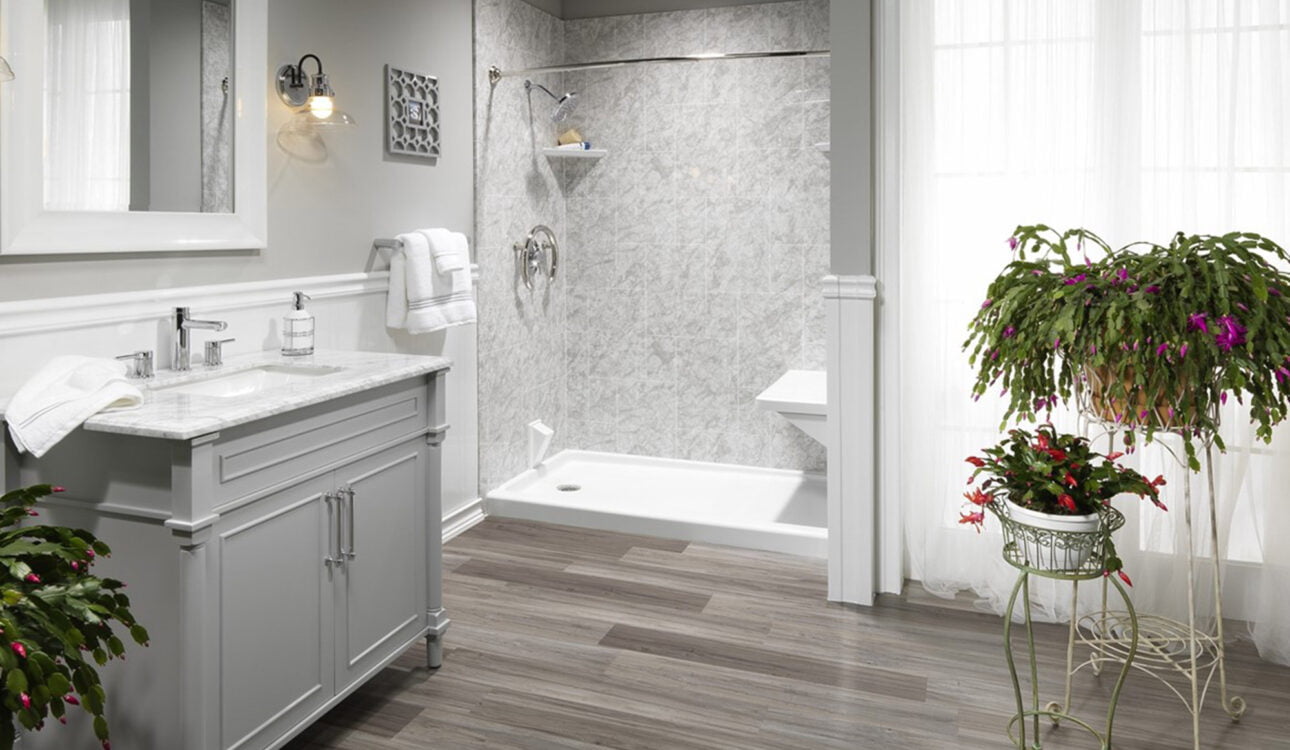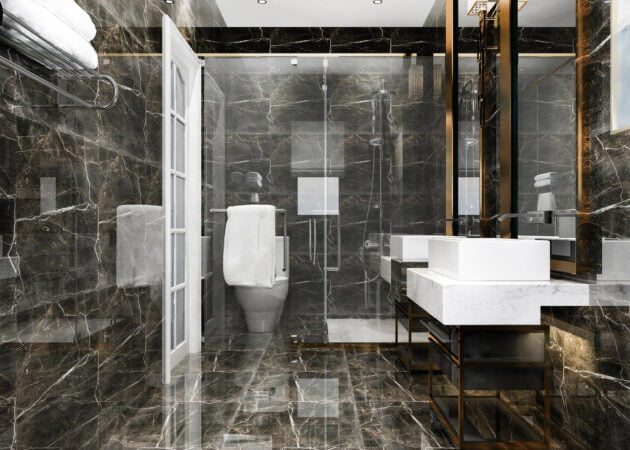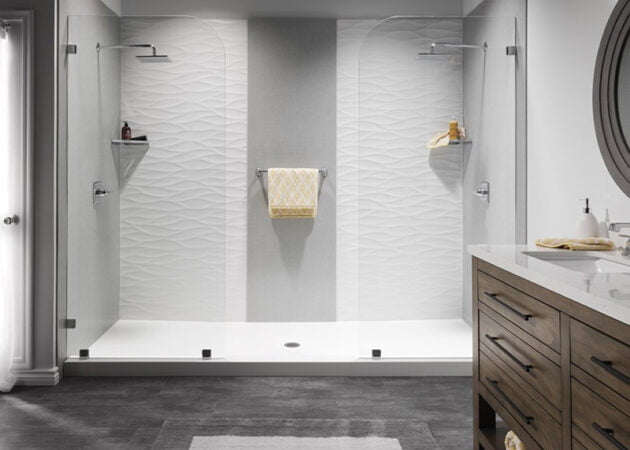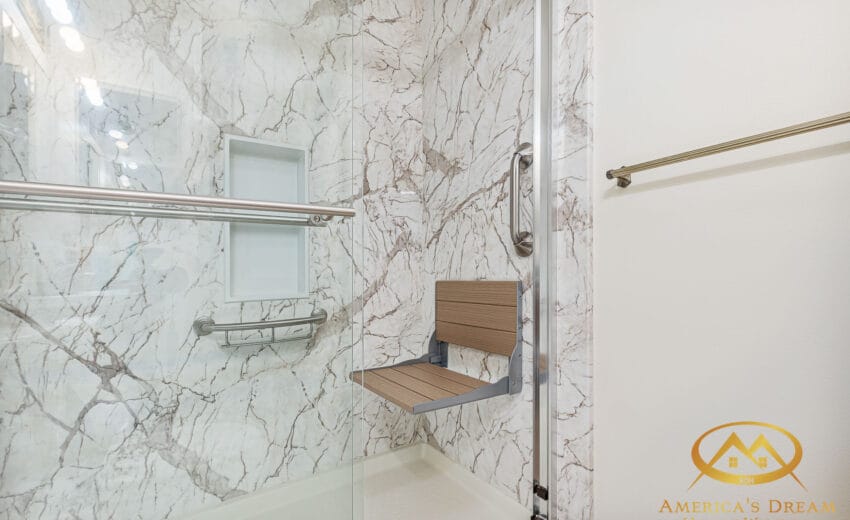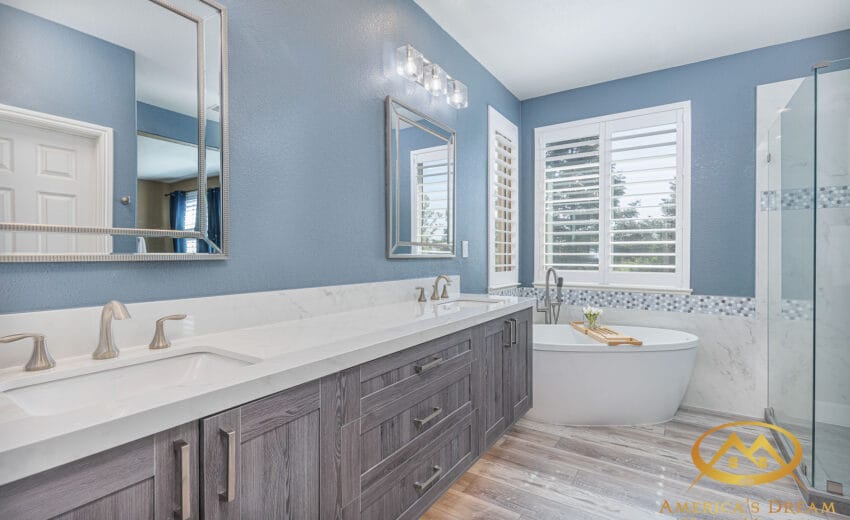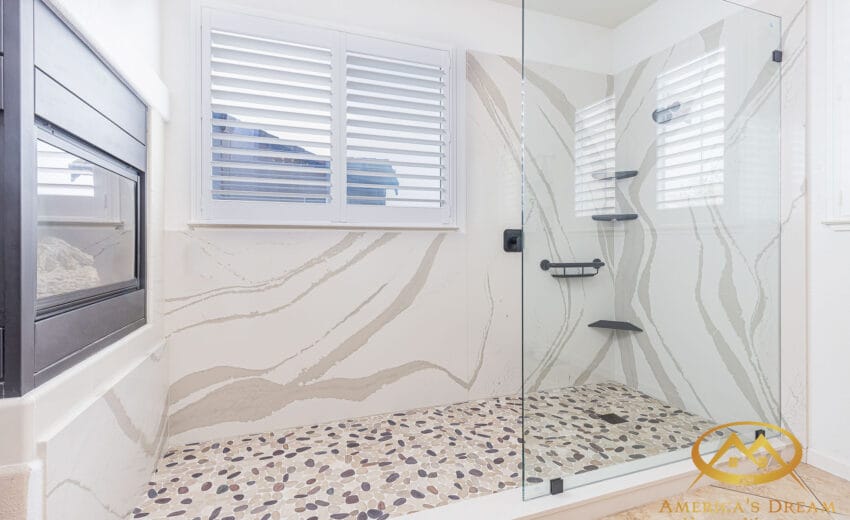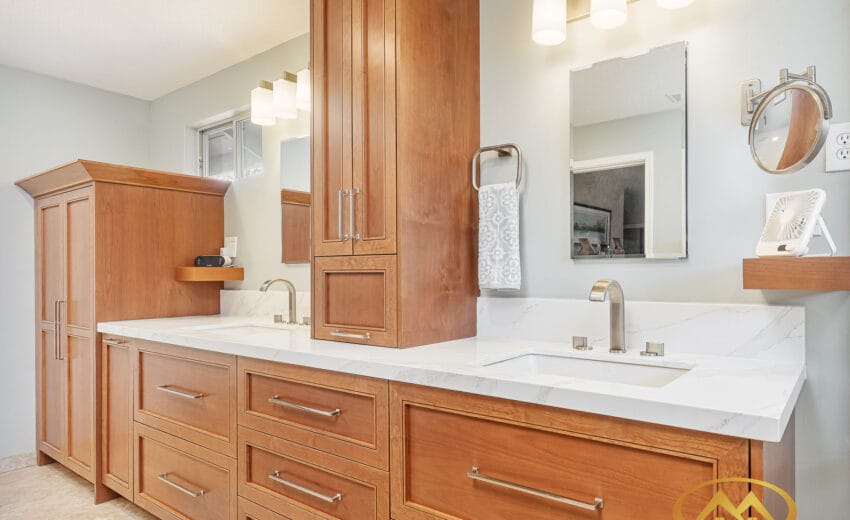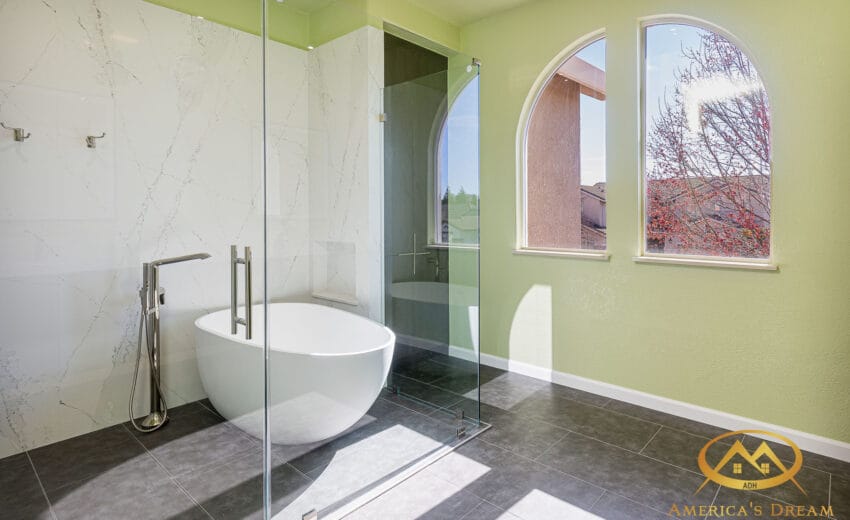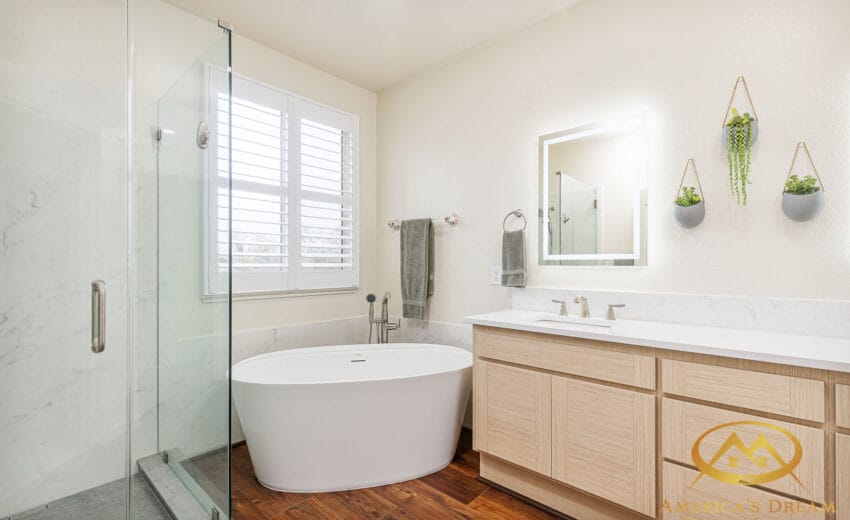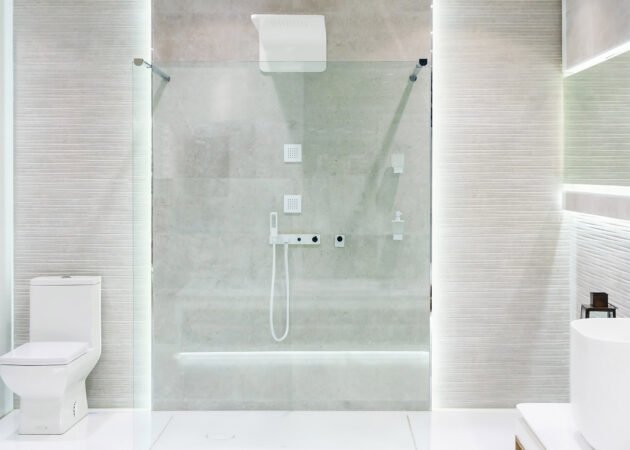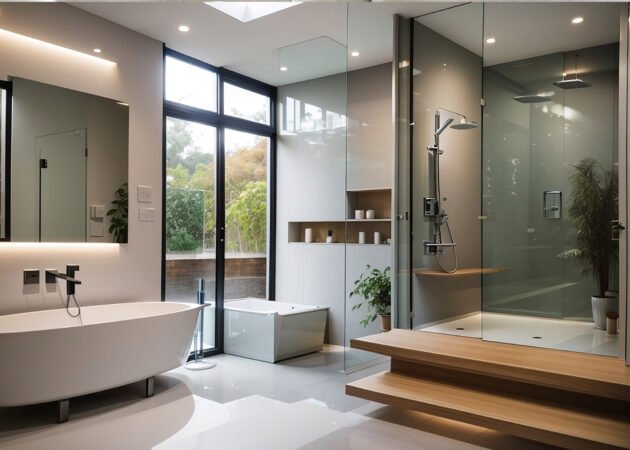When it comes to creating a beautiful and functional bathroom, one must consider what to do for the shower wall. The shower wall serves as a practical structure in the shower by protecting the walls of the bathroom from moisture damage. Aside from its practical function, shower walls are also a canvas for design in the bathroom. The material and design you choose for your shower wall will play a huge role in the overall look, feel, and function of the entire bathroom. Understanding the benefits of a shower with tile walls will give you confidence and peace of mind when moving forward with this material for your bathroom renovation.
The Classic Tile Shower
One of the most popular choices for shower walls is shower wall tile. Whether it’s a small shower stall or a luxurious walk-in shower, tile remains the go-to material for homeowners who want durability and style. Tiles offer incredible versatility and are fairly affordable compared to other shower wall material options. A shower with tile walls offers a canvas to balance both practicality and style.
Tile walls are one of the most common choices in bathrooms because they can be tailored to fit various design themes. Whether you prefer a sleek modern design or something unique and extravagant, tiles are available in countless sizes, colors, and textures, making the design options endless!
Benefits of Shower Wall Tile
- Waterproof: Tiles are water-resistant, making them perfect for wet environments like showers. When properly installed, they form a waterproof barrier that keeps moisture contained.
- Durable: Tiles are long-lasting and can withstand the wear and tear of everyday use. With proper care, they resist cracking, fading, and staining, ensuring your shower walls stay beautiful for years.
- Design Flexibility: Tiles come in a range of colors, patterns, and sizes. You can even mix and match tiles to create a custom design unique to your bathroom.
Types of Shower Wall Tiles
- Ceramic Tiles: Affordable, available in a wide variety of styles, and easy to clean. Perfect for most shower settings.
- Porcelain Tiles: Denser compared to ceramic, porcelain tiles are also ideal for showers and come in a range of finishes, from matte to glossy.
- Glass Tiles: Modern and sleek, glass tiles reflect light, making the shower space appear larger and brighter.
Design Ideas for a Shower with Tile Walls
- Bold Patterns: Use tiles in bold colors or intricate patterns for a design statement. Combining different textures and complementary colors can give your shower a striking appearance.
- Subtle Elegance: Neutral tones, like whites, grays, sage green, and slate blue, can provide a serene, spa-like atmosphere.
- Tile Accent Walls: Adding an accent wall with a different color or texture of tile contrasting the remaining shower walls can create a focal point and add visual interest to your shower.
When designing a shower with tile walls, it’s important to consider both aesthetics and functionality. For example, larger tiles reduce grout lines and minimize maintenance, while smaller tiles create intricate designs or mosaics. The choice of grout color, tile finish, and arrangement can all work together to add character to your shower.
Check Our Recent Projects
Tile Lay Options for a Creative Touch
Here are several creative and functional ways to arrange tiles for your shower walls:
- Straight Lay (Grid Pattern): The most common and simplest way to install tiles. Tiles are laid in parallel rows, both horizontally and vertically, creating a uniform and clean look.
- Herringbone Pattern: This involves laying rectangular tiles in a zigzag or “V” shape, offering a dynamic and sophisticated design.
- Chevron Pattern: Similar to the herringbone pattern, this layout features angled tiles forming a continuous “V” shape with perfectly aligned edges for a geometric look.
- Brick (Subway Tile Shower) Pattern: Rectangular tiles are staggered, resembling brickwork. This classic layout is versatile and timeless.
- Mosaic Pattern: Small tiles arranged in intricate patterns or shapes, ideal for accent walls in showers.
- Offset Pattern: Tiles are installed in a staggered formation, creating a natural, flowing appearance rather than perfectly aligned rows.
Conclusion
Whether you opt for a simple shower wall tile design like classic subway tiles or an artistic display with bold patterns and contrasting colors, shower tile materials provide both functionality and style for your bathroom. The variety of tile options available today gives you endless possibilities to design a shower wall that enhances the overall style and atmosphere of your space.
The main appeal of tile showers lies in their ability to combine form and function. Tile provides a protective barrier against water while its versatility allows you to create styles suited to your personal tastes. With proper care and professional installation services, a tile shower can provide years of use, making it a smart and timeless investment for any bathroom renovation project!
